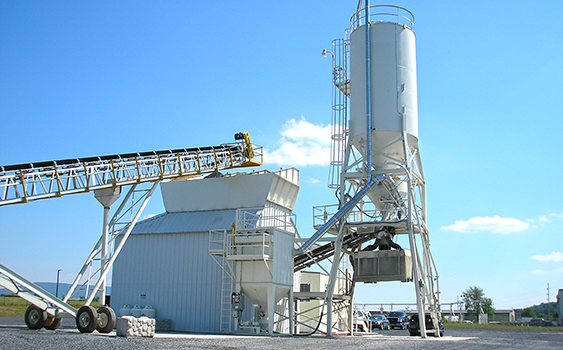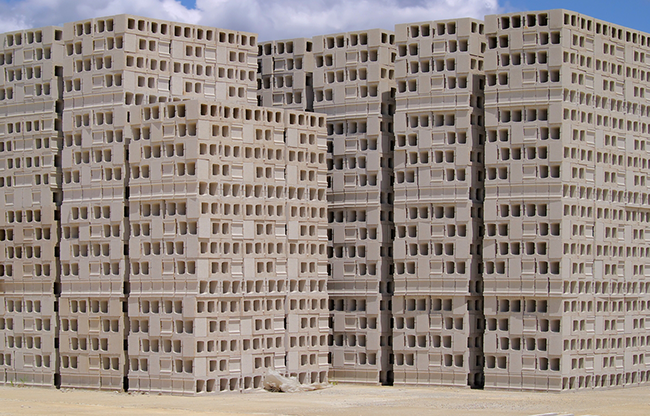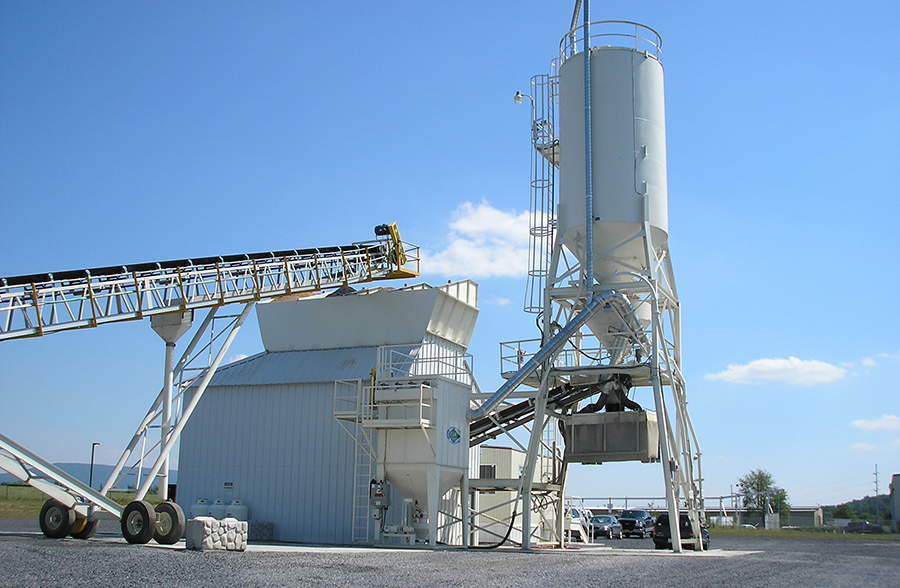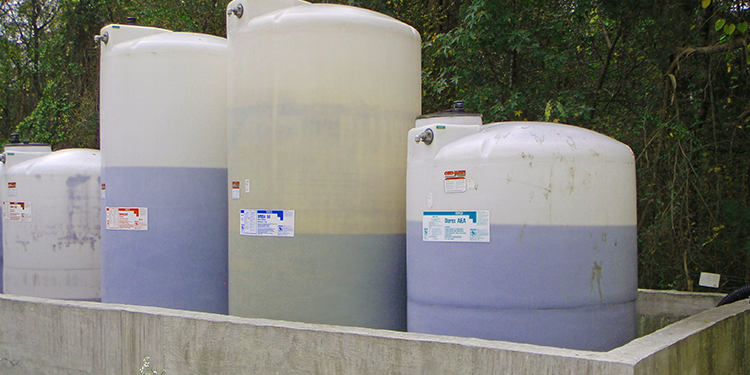Learn when concrete plants need to conduct TRI Reporting.
The issue of TRI Reporting, or Toxic Release Inventory Reporting, or Form R Reporting, or whatever you want to call it, is becoming a very, very serious issue for the concrete industry.
It's become so serious that we've been getting a lot of concrete producers asking us about TRI reporting at concrete plants, and I'll say the same thing I always say to them. If you run a concrete operation, whether it's ready mix or precast concrete, you need to look into TRI Reporting ASAP.
A lot of concrete producers aren't aware of TRI Reporting. Many haven't done it before, there's very little education on the subject, and there's naturally a lot of push back on another regulation to deal with. Hey, I hear you loud and clear and sympathize with you. But, just like saying you didn't know what the speed limit was after you got pulled over, ignorance of the law is not a valid excuse.
The thing that's getting concrete producers to take notice is the extreme fines the USEPA and 3rd Party Environmental Groups are throwing at even small to moderate sized producers (such as in the 10 plant size). I'm talking fines in the 7 to 8 figure range. No one wants to pay that, and I don't blame them!

Do I NEED to do TRI Reporting at my concrete plants?
The answer is maybe, so lets explain why.
If you're still unsure what this even entails, click here to learn what is TRI Reporting. We discuss what it is, what it means to you, and how it could impact your operation.
But the real question remains about TRI Reporting at concrete plants, and whether or not they need to worry about it. Let me break it down in a no-nonsense way. There's really three "qualifiers" when it comes to reporting, and they are:
- Applicable Industries & NAICS Codes - Concrete production is an covered NAICS Code for TRI Reporting. No getting around this one. Anyone who makes any type of concrete product is covered.
- 20,000 Total Working Hours - This has to do with your staffing. Most concrete plants across the United States, except for some smaller facilities, have enough staff to meet the minimum requirements for full-time equivalent employees. Figure 10 full time employees and you're in. If you have part timers, add their time up and see what you get.
- Manufacture, Process, or Use Toxic Chemicals - When it comes to toxic chemicals being manufactured, processed, or otherwise used, there are absolute products at your concrete plant that fall under that definition. We'll go over them in a second since this is where most producers call BS and say there's nothing toxic at a concrete plant. But bear in mind, this isn't quite right (but for now it's good enough to explain) since just using a chemical isn't a trigger, you have to use a certain amount of a chemical which are usually called reporting thresholds.
So the only two variables worth discussing are the size of your operation and how much you're producing. If you can get out due to staffing, great, if not, time to start running some numbers and seeing if you hit the threshold for toxic chemicals. But what exactly are those chemicals?
TRI Reporting at Concrete Plants - Admixtures & Nitrate Compounds
The list of toxic chemicals includes nitrates. Several common admixtures contain nitrates, and when converting gallons of admixtures to pounds of nitrates, you’ll find that it doesn’t take that much admixture to exceed the reporting threshold for Toxic Release Inventory Reporting. Example admixtures would include BASF NC534 or Grace DCI. How do you know if your admixture contains nitrates? Check the SDS and do the math. If you exceed the 25,000 pound reporting threshold for nitrates, you’re in, and you have to do Section 313 Reporting at your concrete plant.
TRI Reporting at Concrete Plants - Cement, SCMs, Lead & Mercury
This is the tricky one. I’ll bet your SDS for cement or SCMs don’t contain lead as an ingredient, since your material doesn't contain more than 1% of it. However, the USEPA knows there's lead in your material, as well as some others with knowledge of this industry, and they think we should be reporting on it. Lead is a “PBT” chemical (persistent, bioaccumulative and toxic), which has a much lower reporting threshold of 100 pounds, meaning many facilities need to report since most facilities use a lot of cement. It might be that your average ready mixed concrete plant with average production might exceed the reporting threshold, whether your SDS shows lead or not. How would you know if your material contains lead? Ask your supplier, ask your state or national association, check the SDS, or take it to a lab and get the material analyzed. It's your responsibility to find out!

Other Toxic Chemicals at Concrete Plants
I don’t want to make it seem like it’s only nitrates and lead in cement. Plenty of concrete facilities who are doing TRI reporting are reporting additional chemicals beyond just nitrates and lead. Some people are reporting the toxic chemicals found in sand. Others have specialized products used in their process which require special considerations. Some producers are burning fuel in enough quantities that they trigger the need to report on PACs when it comes to TRI Reporting.
There are a lot of different things to take into consideration, and the ball's in your court.
You have to inventory your chemicals used on site, and compare them to the USEPA list of chemicals and applicable thresholds, and go from there. That list is here, and it's a fun read...
TRI Reporting at Concrete Plants Includes Releases
Remember, exceeding the TRI reporting threshold is half the battle. The second half of the battle is, do you release those toxic chemicals to the environment? That's going to require some tricky analysis and calculations, and honestly, that step is best left to professionals and experts. I often compare it to doing your company's taxes. Maybe you're a finance expert, and if so, power to you. Maybe you're an environmental expert, and you can do this on your own, and if so, power to you again! Point is, you really have to know what you're doing when it comes to figuring out releases.
The USEPA has levied some pretty harsh fines in the past for not reporting. They can fine you per facility, for each year you failed to report, and they'll go back several years. It adds up real quick. The initial evaluation and reporting is the most difficult and may not be the easiest thing to do, but it’s much better than slugging it out with the USEPA over a huge fine.
My advice, if you're a concrete producer, look into Toxic Release Inventory Reporting ASAP. Either hire help, or set some time aside for your staff to get it done. It can be tricky, and we're here to help.
Contact Concrete Industry Environmental Experts
Are you running a concrete plant and need help? If so, you've come to the right place. RMA has been actively involved in the concrete industry since our founding in 1992, including staff members from RMA serving on numerous boards and committees for state associations, NRMCA, and NPCA. We've been an integral part in developing NRMCA's Green-Star EMS, and were instrumental in the development of the NRMCA Environmental Course, and our Principal Environmental Consultant Doug Ruhlin has taught the course every year since it's inception.
Long story short, we know the ins and outs of the environmental problems concrete plants face better than anyone else. We've been on-site at close to 1,000 different concrete plants across the country, so when we say we've seen it all and done it all, we mean it. We've helped some of the biggest players in the industry on multi-state projects, as well as small mom and pop concrete producers running a handful of trucks. No matter your size, or the type of concrete you produce, we can help.
So if you're having any type of issue at your concrete plant, we'd love to talk and learn how we can help. Even if we can't help, chances are pretty good we know who can help you, and we'd love to get you in touch with the right people to fit your needs
To reach out, feel free to shoot us an email at info@rmagreen.com, click here to contact us, or give us a call anytime at 888-RMA-0230 to learn how we can help your concrete plant deal with environmental regulations.
Additional Concrete Plant TRI Reporting Articles
TRI Reporting heats up for the concrete industry!
TRI Reporting at Concrete Plants - What you need to know!
4 Must Knows About TRI Reporting at Concrete Plants






